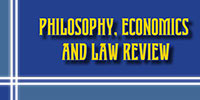Mykola SLOBODYANYUK
D.Sc. in History, Professor (Ukrainian State University of Science and Technologies), Ukraine
ORCID ID: orcid.org/0000-0003-2218-0818
nikslobo@gmail.com
UDC 930.1
DOI 10.31733/2786-491X-2022-2-37-47
Keywords: historiosophy, historiography, Synopsis, Kyiv-Mohyla Academy, Ukraine, russia.
Abstract. The aim of the research is to analyze the degree of research of the historiosophical ideas of I. Giesel in modern historiography, to define the role and place of these ideas in the sociopolitical thought of the eighteenth century, to determine the relevance of the conceptual provisions of this person in the context of Ukrainian-russian relations.
The research methodology is based on the principles of historism, scientific objectivity, a specifc historical systematicity, and also the use of general scientific (analysis, synthesis, generalization) methods. While making this study there were applied general historical methods of making a historiographical and terminological analyses, and also the comparativistics method.
The scientific novelty. The author for the first time carried out a comprehensive analysis of modern scientific literature on the study of the views of I. Giesel on the relationship between God and human, on the one hand, and also the state and human, on the other hand. It has been established that modern researchers have not fully covered the role and influence of Giezel’s work on Ukrainian-russian relations and the collective memory of both nations.
Conclusions. Modern scholars agree that the historiosophical works of I. Giesel aimed at transforming society on the basis of Christian morality and faith in God. An important role in the implementation of this task should have been played by both sovereigns in state-political area and clergy in the areas of church and morality. At the same time, contemporary authors do not have a single opinion regarding the political views of I. Giezel, his vision of the future of Ukrainian lands and the Giezel’s place in the formation of russian historiography and in the formation of russian historical myth.
On the example of I. Giezel, it becomes obvious that the pro-moscow orientation of a significant part of Ukrainians and the phenomenon of “Little russianism”, cannot be explained only by russification or mercantile interests. The reasons for the popularity of these ideas lie much deeper and often go beyond the rational. Without an impartial study of these phenomena, it is impossible to find ways of consensus and consolidation of the Ukrainian nation.
References
Antoniuk, G. (2013). “Osvіtnia praktyka Kyievo-Mogylianskoi akademіi v kontekstі zakhіdnoievropeiskogo skholastychnogo dyskursu” [Educational practice of the Kyiv-Mohyla Academy in the context of Western European scholastic discourse]. Pedagogіka і psikhologіia profesіynoi osvіty [Pedagogics and Psychology in Higher Education], 2, 189–199. [in Ukr.].
Gotsuliak, V. (2019). “Teoretyko-metodologіchne osmyslennia suspіlno-polіtychnoi
dumky ranniomodernoi Ukrainy” [Theoretical and methodological understanding of sociopolitical thought of early modern Ukraine] (Doctor’s thesis). Kyiv. [in Ukr.].
Kysliuk, K. (2008). Іstorіosofіia v ukrainskіy kulturі: vіd kontseptu do kontseptsіi [Historiosophy in Ukrainian culture: from concept to concept]. Kharkіv: KhDAK, 288 p. [in Ukr.].
Kogut, Z. (2011). Vplyv polіtiky na Іnokentіia Gіzelia ta vydannia kyivskogo Synopsysu: nove osmyslennia [The Influence of Politics on Inokentiy Giesel and the Publication of the Kyiv Synopsis: A New Understanding]. In Іnokentіy Gіzel. Vybranі tvory v 3-kh tomakh. T. 3: Doslіdzhennia ta materіaly (pp. 9–30). Kyiv–Lvіv: Svіchado. [in Ukr.].
Magocsi, P. (2007). Іstorіia Ukrainy [History of Ukraine]. Kyiv: Krytyka, 639 p. [in Ukr.].
Pavlov, V. (2007). Barochnye motivy v filosofii Innokentiya Gizelya [Baroque motifs in the philosophy of Inokentiy Giesel]. In Chelovek v kulture russkogo barokko: sbornik statey po materialam mezhdunarodnoy konferentsii, IF RAN, pp. 216–224.
Plokhy, S. (2001). The Cossacks and Religion in Early Modern Ukraine. Oxford: Oxford University Press, 401 p. [in English] doi: 10.1093/acprof:oso/9780199247394.001.0001.
Plokhy, S. (2006). The Origins of the Slavic Nations Premodern Identities in Russia, Ukraine and Belarus. Cambridge: Cambridge University Press, 379 p. doi: 10.1017/CBO9780511496837.
Priadko, N. (2005). “Liudyna u kontekstі relіgіyno-fіlosofskoi refleksіi І. Gіzelia” [Human in the context of religious and philosophical reflection of I. Giesel] (Extended abstract of Candidate’s thesis). Kyiv. [in Ukr.].
Snyder, T. (2003). The Reconstruction of Nations. Poland, Ukraine, Lithuania, Belarus, 1569–1999. New Haven: Yale University Press, 367 p.
Syrtsova, O. (2011) “Tekstologіia ta іstorіosofіia Synopsysu Іnokentіia Gіzelia v argumentatsіi avtorskoi іdentychnostі tvoru” [Textology and historiosophy of Synopsis by Inokentii Giesel in the argumentation of the author's identity of the work]. Kyivska Akademіia [Kyiv Academy], 9, 78–86. [in Ukr.].
Yakovenko, N. (1997). Narys іstorіi Ukrainy z naydavnіshykh chasіv do kіntsia XVIII stolіttia [Essay on the history of Ukraine from ancient times to the end of the 18th century]. Kyiv: Geneza, 312 p. [in Ukr.].
